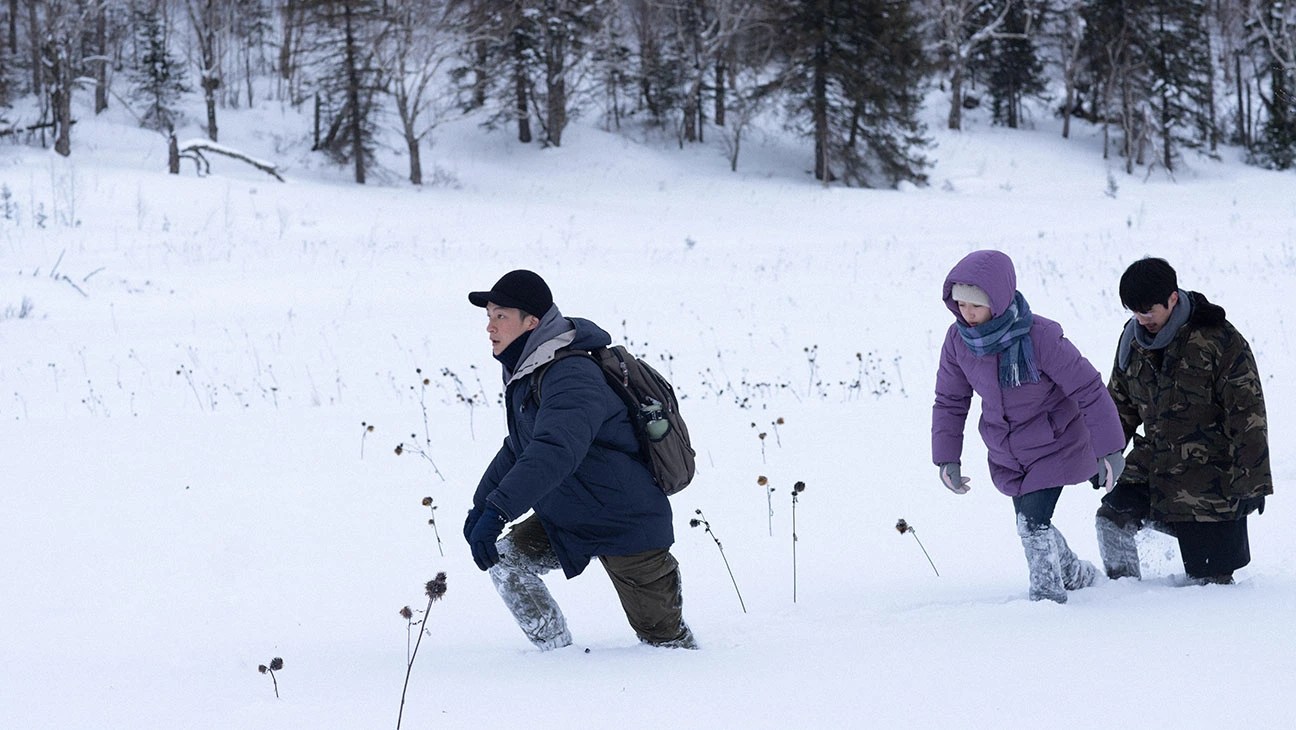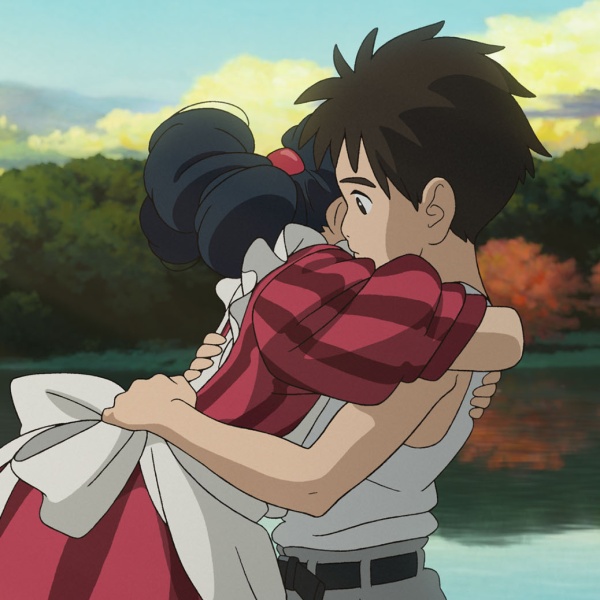Editor’s note: This review was originally published at the 2023 Cannes Film Festival. Strand Releasing releases the film in New York City theaters on Friday, January 19 and in Los Angeles theaters on Friday, January 26.
A sweet and shimmeringly beautiful film about how life can flow and then freeze and then thaw into something entirely new if you let it, Anthony Chen’s “The Breaking Ice” finds hope in the most frigid of places. In this case, that place is the small Chinese border city of Yanji during the depths of its endless winter, when people’s breath is as thick as the gray fumes that spew out of the factory smokestacks, and the snowy peak of Changbai Mountain looks closer to heaven than it does to Pyongyang. More than half a million people live there (many of them ethnic Koreans), but few of them seem to think of it as home. It’s as if they got stuck there on their way to somewhere else, and — in the wake of a pandemic that restricted travel and imperiled the economy — are still waiting to be defrosted. Still waiting for the warmth they need to become liquid again.
The frigid soul of a “sad hot people” movie par excellence, Nana (an extraordinary Zhou Dongyu) has learned to fake the warmth she’s forgotten how to find in herself. By day she works as an effusively smiling tour guide who talks busloads of tourists through the same old spiel about local Yanji history, as if stuck in a time loop that only she can see. By night, Nana is a prickly ice queen who tears up the local dancefloors and seems to take a cold degree of pleasure in rebuffing the handsome and rangy Han Xiao (“The Wandering Earth” star Qu Chuxiao), whose Korean-Chinese family runs the restaurant where Nana ends her tours. And then — as so often happens in life — a suicidal guy in a sweater vest shows up out of nowhere and changes the temperature for everyone.
We’re never told why Li Haofeng (a reserved but receptive Liu Haoran) looks over every ledge he can find as if he’s wondering if it might be the one, but the vagueness of his depression suits a film that’s far less focused on biographical details than it is on the broad floes of unspoken feeling that they harden into each winter.
We know that Haofeng is a Shanghai-based finance type who’s come to Yanji for a friend’s wedding, we know that he chews on ice cubes as if he savors the sound of them cracking open in his mouth, and we know that he sees something about Nana — even from his perch on a rickety fire escape 20 feet off the ground — that inspires him to get on her bus rather than jump to his death, but his wispy goatee is just thick enough to hide a few secrets. Beautiful as Nana is, sex doesn’t seem all that high on Haofeng’s list of concerns. Maybe he’s just seduced by her cheerful enthusiasm, and then doubly so when he realizes that she’s able to fake it from scratch.
Whatever the case, Haofeng’s attraction to Nana is as drifting and elemental as the rest of Chen’s film. Like so many of the people we meet in Yanji, Haofeng isn’t drawn to the city so much as he’s stranded there (Nana and Xiao take him in, and take him out, after Haofeng loses his phone and misses his flight home). He’s too numb from the cold to feel like he belongs anywhere else.
A tell-tale symbol of the wealth that makes its owner such an odd duck among the decidedly blue-collar local population, Haofeng’s wrist watch stops working shortly after he arrives in Yanji, its hands forever stuck at 4:45am. So many of this movie’s scenes are set during those pre-dawn hours — pitched between the darkness of a long night and the possibility of a new day — that Haofeng’s watch hardly seems broken.
And while Haofeng’s relative affluence is seldom mentioned aloud, his freedom to leave Yanji at any time adds a curious undercurrent to the fact that he chooses not to. Over the course of the long weekend that he, Xiao, and Nana spend drinking soju together and running through the snowdrifts, Haofeng’s decision to stay appears to remind his new friends about the liminality of their own lives, and that the borders they’ve imposed upon themselves are every bit as arbitrary and imagined as the one that separates China from North Korea.
Haofeng literally shouts over that border in a scene that — in keeping with the spirit of Chen’s previous work (e.g. “Drift,” “Ilo Ilo”) — is too ethereal to be weighed down by the obviousness of its meaning. Here, the Singaporean director is something of an outsider himself, and he brings a palpable sense of passing through to a film in which spiritual freedom rubs up against purgatorial immobility. It’s amazing how fast youth can fester when it’s fenced in or denied its future, and “The Breaking Ice” percolates with the leftover energy of people whose collective life force simply won’t let them lie flat and give up.
That energy expresses itself in a wide variety of ways. At its most exuberant, the three members of the film’s almost love triangle sprint through a bookstore in an explicit homage to “Jules and Jim” as Kin Leonn’s lovely score twinkles over the soundtrack. Later, they look for each other in a massive ice maze, happy to be lost for once. Elsewhere — late into one of those drunken nights where it feels like the world doesn’t exist beyond the room you’re in — Nana cries as Xiao plays a song on his guitar. She springs a leak whenever she feels emotion, melting every night and reconstituting herself every morning. Most of these scenes are hazy but immaculately well-handled, their blank spaces thick with unrealized dreams.
Chen only stumbles when he tries to fill those blank spaces with firm details, as he does by giving Nana a simple backstory that makes her embittered surrender too literal for a story that better expresses itself through a less defined sense of longing (a late pivot towards allegory helps on that score). This raw and lingeringly sensitive film resonates more strongly when it’s lost in the ice maze than when it’s tracing its steps back to the entrance. “The Breaking Ice” sticks with you because it doesn’t lead its characters out of the maze, it just melts down the walls between them.
Grade: B+
“The Breaking Ice” premiered at the 2023 Cannes Film Festival.




